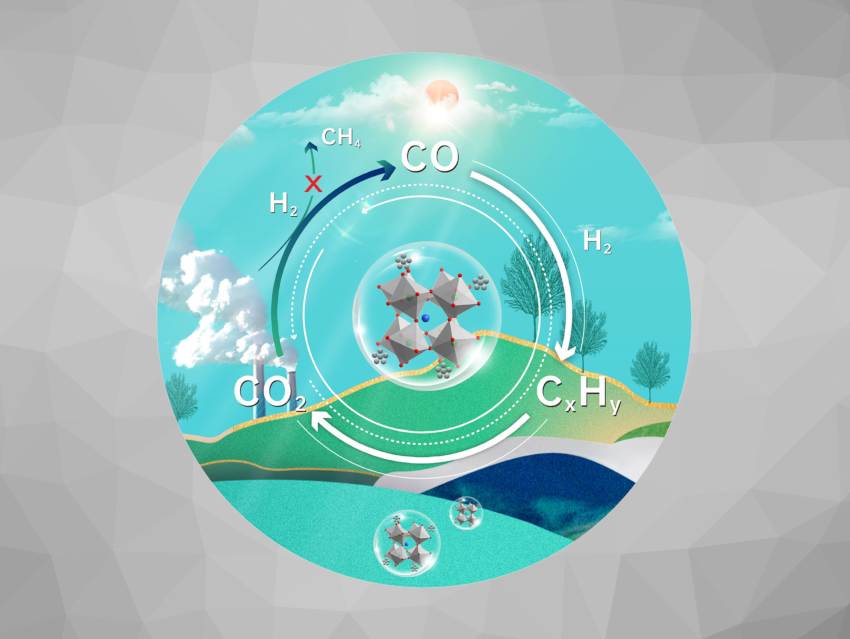In this issue, Evgeny A. Kataev et al. review synthetic host–guest complexes with high stabilities, and Dehui Deng et al. summarize membrane electrode assembly for electrocatalytic CO2 reduction. The Minireviews deal with glass formation in hybrid organic–inorganic perovskites (Thomas D. Bennett et al.) as well as the expansion of linker dimensionality in metal–organic frameworks for sub-ångström pore control for separation applications (Omar K. Farha et al.). In a Highlight, Julia K. Varga and Ora Schueler-Furman suggest allowing Alphafold2 to decide which peptide substrate binds better to a given receptor.
In the original research section, Dongsheng Xu et al. present a highly active hydrogen-rich photothermal reverse water–gas shift reaction on Ni/LaInO3 perovskite catalysts (see picture). Martin Schröder et al. describe the modulation of uptake and reactivity of nitrogen dioxide in metal–organic frameworks. Holger Frey et al. merged styrene and diene structures to a cyclic diene in the anionic polymerization of 1-vinylcyclohexene. Nuno Maulide et al. succeeded in the free transfer of amino groups via α-amination of native carbonyls.
- Angewandte Chemie 28/2023: Principles and Applications,
Angew. Chem. Int. Ed. 2023, 62 (28).
Sponsored content is not written by and does not necessarily reflect the views of ChemistryViews’s editorial staff.



